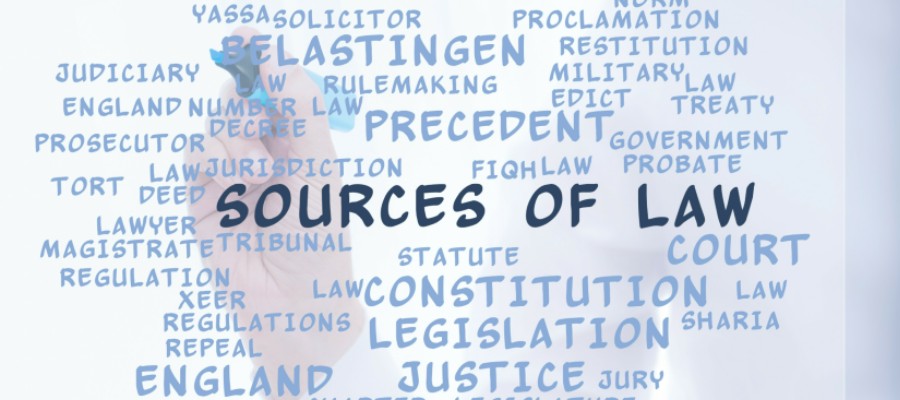 Dr Maureen O'Sullivan presents part one of a three-part exploration of the sources of rights for vegans
Dr Maureen O'Sullivan presents part one of a three-part exploration of the sources of rights for vegans
Whilst the first two articles in this series noted that veganism[1] had been acknowledged by the courts before legislation formalised its recognition, this article will explore the multifarious sources of rights which may be utilised by vegans in order to protect their beliefs or, indeed, to advance them. It will note that their hierarchy is not assured nor are their bases without fault lines. The piece will focus on United Kingdom (UK) and Irish law and the various intersecting skeins of European law and will be divided into parts I, II and III.
As noted in previous articles, veganism appears to have been recognised in the Irish Court of Appeal for the first time in 1898. Viewed analytically, this represents a common law recognition of the practice and is notable as it preceded legislation. Eminent judges were aware of beliefs which differed from their own and defended, protected and upheld them. Rights are sometimes conceptualised as a protective shield but on other occasions as a proactive sword, and the former has certainly been to the fore in the development of European legislation to date.[2] One is protected against discrimination, but this does not necessarily ensure the provision of appropriate food. The judicial source of rights should not be forgotten and remains open to courts to expand. In our increasingly bureaucratic world, it is useful to remember that rights do not emanate from legislation alone, and this may be important in the expansion of this rights territory as society, which includes the judiciary, becomes more aware of the ethics of veganism. The common law can move much more speedily than a bureaucratic juggernaut even if it is desirable for the judiciary and legislature to work in tandem.
The European Convention on Human Rights 1950 (ECHR) recognises specified human rights within its jurisdiction of 46 member states. Veganism has been identified as a protected belief under Article 9 of the Convention. The manner in which this is actualised in each member state is different, however. In the UK, the ECHR was eventually domesticated by the passage of the Human Rights Act 1998. In Ireland the legal trajectory differed: the European Convention on Human Rights Act 2003 was passed subject to the Constitution meaning that if there was a clash in the interpretation of the rights, the constitutional incarnation would prevail. I’ve noted elsewhere, however, that this legal manoeuvre does not abrogate Convention rights as appeals can be made to the European Court of Human Rights (ECtHR) should domestic remedies be exhausted. The same principle applies in the UK where if a right which arises under the Human Rights Act is not recognised, a UK subject could still appeal to the ECtHR.
Furthermore, new rights are recognised when the ECtHR applies the ECHR, rather than national courts applying domestic versions of the Convention. The responsible authority is the European Court itself, made up of judges, some of whom hail from common law jurisdictions. A very eminent former Chief Justice of Ireland, Clarke CJ has indicated that occasions may arise in which one lacks standing before the Convention but could still rely on the domestic legislation, especially where such a right was mirrored in the Irish Constitution. Far from harmonising Convention rights across Europe, domestication could cause ‘balkanisation’.[3] A tangled web indeed!
The Irish Human Rights and Equality Commission, which is the equivalent of the UK’s Equality and Human Rights Commission, has, like its British counterpart, recognised veganism as a protected right, but this has not yet been tested in the courts in Ireland. Moreover, veganism is not specifically named in the Convention or in the domestic legislation in either jurisdiction. Nomenclature can create complications because were veganism specifically enumerated it would also need a definition. This could have significant knock-on effects on other areas of the law, such as food labelling, and multiple stakeholders would be likely to emerge seeking to influence the definition. More words do not necessarily shed more light, and the potential role of the judiciary for expanding vegan rights and ensuring their integrity should be kept to the forefront of our minds as this path unfolds.
In the UK, to surmise, rights emanate from the common law, constitutional law, statute and international conventions, such as the ECHR. In Ireland the rights regime has some more sources given the existence of a written constitution. The next parts will examine other sources of rights, such as under EU, constitutional and equality law, and these are relevant as they help to contour veganism as an ethical belief.
Maureen O’Sullivan, PhD, Lecturer (Above the Bar), School of Law, National University of Ireland, Galway.
References
[1] Described as ‘vegetarianism’ in the courts before the coinage of the term ‘vegan’ and sometimes used interchangeably given that the principles which apply to the recognition of vegetarianism also usually apply to veganism and vice versa.
[2] I use the term ‘European’ to refer to organisations such as the Council of Europe that are not part of the EU.
[3] A detailed discussion can be read in Maureen O’Sullivan, ‘Climate Change Policy Plans in the Irish Supreme Court: Lessons from a Neighbouring Island?’ in Climate Crisis and Creation Care: Historical Perspectives, Ecological Integrity and Justice Christina Nellist (ed) Cambridge Scholars Publishing, 2021.
